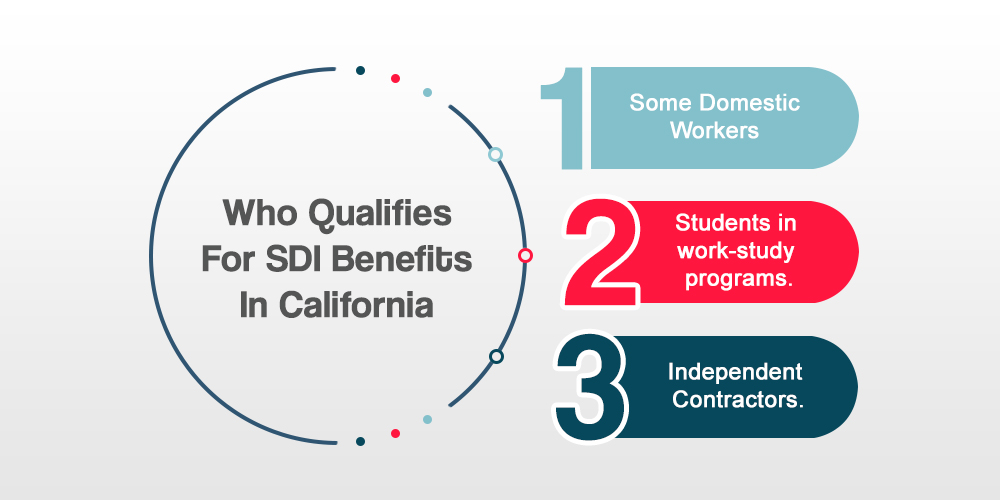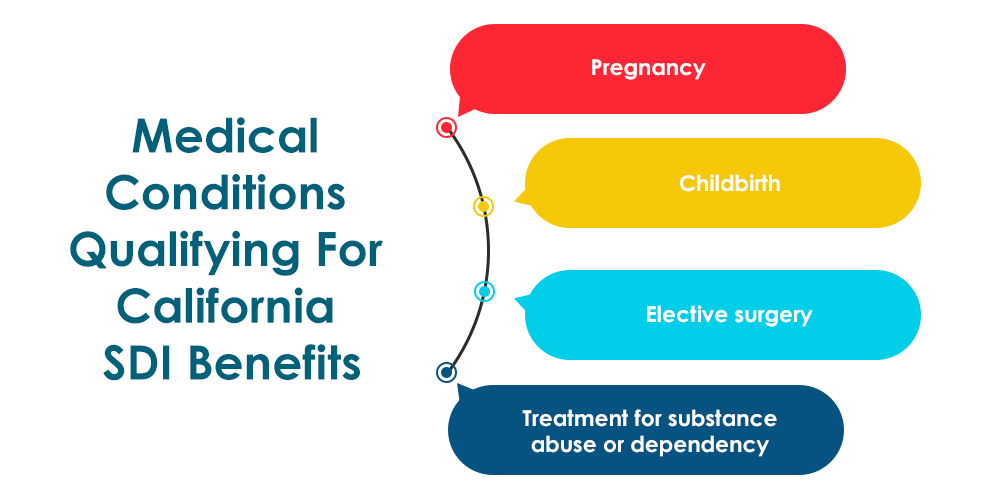When an injury or illness prevents you from working, you have several options available to replace wages lost while you cannot work. Social Security Disability Insurance and Supplemental Security Income are two programs through the Social Security Administration that provide monthly benefits, but you must be unable to work for at least 12 months.
California State Disability Insurance, which will be referred to simply as “SDI” throughout the remainder of this article, provides wage-replacement benefits when an injury, illness, or pregnancy keeps you out of work. The maximum benefit period is 52 weeks, but the maximum benefit period may extend longer than 52 works under certain circumstances.
What follows is an overview of California disability insurance focusing on how long payments continue. As you read through the information about SDI, remember that a disability advocate at Sackett and Associates is available to answer questions about SDI and other types of disability programs, including the SSI and SSDI programs through the Social Security Administration.

Who Qualifies For SDI Benefits In California?
SDI is a state program covering most, though not all, people working in California. Some of the types of workers who may not be covered by SDI include:
- Some domestic workers.
- Students in work-study programs.
- Independent contractors.
If your injury or illness occurred at your job or is otherwise work-related, you cannot receive SDI benefits. Instead, you would file a claim for workers’ compensation benefits through your employer.
Employers have the option to cover their employees for short-term disability through a private plan. Private plans typically provide wage-replacement benefits for workers through a short-term disability insurance policy.
Medical Conditions Qualifying For California SDI Benefits
A disability covered by the SDI program includes physical or mental illnesses and injuries that keep you from doing the regular and customary work activities that you did before becoming disabled. Disabling medical conditions include the following:
- Pregnancy
- Childbirth
- Elective surgery
- Treatment for substance abuse or dependency
A physician or other licensed healthcare professional must certify that you have a medical or mental health condition that prevents you from working for more than one week.

Medical or mental health conditions caused by accidents or conditions related to your employment are not covered by SDI. For example, an injury caused while using a lawn mower may be covered by SDI if it prevents you from working and happens while mowing your lawn. If you were injured while cutting grass as an employee working for a landscaping company, it is work-related and may be covered through workers’ compensation.
Benefits Payable Through SDI
You must apply for SDI benefits within 49 days from the onset date of your disability. If you miss the filing deadline, talk to a disability lawyer at Sackett Law because you may still be eligible provided you have a good reason for not applying for benefits on time.
No benefits are paid for the first week of disability, but you may use paid vacation that you have accumulated through your job. You cannot, however, collect unemployment benefits during the waiting period or while receiving SDI because you must be able to work in order to receive unemployment benefits.
The weekly SDI benefit is calculated using your highest earning quarter during a base period that covers 12 months. The weekly SDI payment is 60% to 70% depending on your income. Benefits continue for up to 52 weeks. It ends sooner than 52 weeks if your physician or other types of licensed health care professional certifies that you are no longer disabled and may resume working. If you return to work during the 52-week period on a part-time basis, you may be eligible to have your benefit period extended. Ask a disability advocate to look into it for you.
SDI Is Not The Same As Paid Family Leave
If you are pregnant, you cannot apply for SDI unless and until you lose earnings because a doctor or other health care professional certifies that you cannot work. You may receive SDI benefits for a pregnancy-related disability for up to four weeks before your delivery date and for as long as six weeks after delivery for a pregnancy without medical complications. Extended benefit periods may apply when there are medical complications.
The benefit periods are different for deliveries by cesarean section. You may receive SDI payments for four weeks before delivery and for as long as eight weeks after.
Paid Family Leave (PFL) in California lets you receive benefits for up to eight weeks after delivery. If you receive SDI because of a pregnancy-related disability, PFL benefits would not begin until your medical professional confirms that you can return to work and no longer qualify for SDI.
Getting Help With California Disability Benefits
The disability professionals at Sackett and Associates have provided exceptional representation and trusted legal advice to disability claimants for more than 40 years. Arrange for a free consultation to learn how they can help you with your claim for California disability Insurance and other types of disability benefits by contacting them today.


Leave A Comment